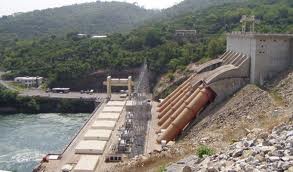
Some officials of the Volta River Authority (VRA) have said the recent tariff increment announced by the Public Utility Regulatory Commission (PURC) is not favourable for their operations.
Although these officials are tight-lipped about the issue, they, however, noted that the management of the Authority is having discussions with government on the matter.
They expressed these sentiments during a tour by media personnel to the Takoradi Thermal Plant (TTP) at Aboadze.
The tour, organized by the Corporate Communications of the VRA, was to engage its stakeholders, especially the media, on the progress of its operations.
The officials said even with the current increment of 78.9 percent in electricity tariffs, the Authority would not be able to break-even.
They explained that it cost them 54p per kilowatt/h for generating electricity through fuel whiles the PURC tariff approval is 11.4p per kilowatt/h.
Mr Steven Owusu, the Maintenance Manager at the TTP, explained that the current installed capacity of both T1 and T2 is about 550 Megawatts (MW).
He said T1 alone has an installed capacity of 330MW made up of two gas turbines, each with 110MW capacity and a steam turbine with 110MW.
He said the TICO plant (T2) has an existing capacity of 220MW is being expanded to add a 110MW steam turbine.
Mr Owusu said the T3 plant has an existing installed capacity of 132MW and is being expanded to 172MW with a 40MW steam turbine.
He said currently hydro-generation is about 54.6 percent of the country’s total installed capacity while thermal is about 46 percent and solar 0.0072 percent.
He said by 2022, thermal generation for electricity would constitute over 50 percent of the generation mix, adding that the VRA would be constructing more thermal plants looking at the projects they have on the drawing board.
Mr King Taylor, the Plant Manager for T3, announced the construction of a new 170MW T4 plant to augment existing the T3 plant.
He said various proposals have been submitted, and inspection of the site has been done by the companies that tendered for the bid.
He said by the close of the month there will be an evaluation of those tenders or proposals to know who exactly has to do the work, adding that some preparatory work has started and development is going to start very soon.
Mr Taylor also stated that VRA has started the process to retrofit the T3 plant which had its turbines, 1 and 4 burnt on June 5, 2013.
He said because the damages seem to be common to all the four turbines, the VRA decided even not run the other two turbines, 2 and 3 even with minor damages until they ascertain the cause of the damage.
He said after the incident, both VRA and Magellan Company, the main contractor of the project, carried out their own independent investigations in the matter.
Mr Taylor said because the two organizations could not agree on who caused the damage, so they decided to contract South West Research Institute from Texas as an independent arbiter to find the cause of the damage, and which organization is to bear the liability.
He said the report from the independent arbiter would be in by the close of the month and after that they would start work to repair the T3 plant.
He said if the contractor comes as scheduled, by the end of the month after 37days, units 2 and 3 could be run to generate electricity.
Mr Samuel De-graft Johnson, Public Relation Officer, said the media is a key stakeholder in their efforts, and they need to be informed at every step of their activities.
He said some time in February this year, the media undertook a facility visit to VRA operational areas and that the current tour was to update themselves on the organization’s activities.
He said the expectation of VRA is to be able to meet their mandatory responsibility of providing adequate reliable and stable power to the country to ensure that our development is on course.
Mr De-graft Johnson said the challenge, which confronts the organization are within limits and are being tackled, but those beyond them, they engage stakeholders and ensure that they are on course to provide the power the nation needs for development.